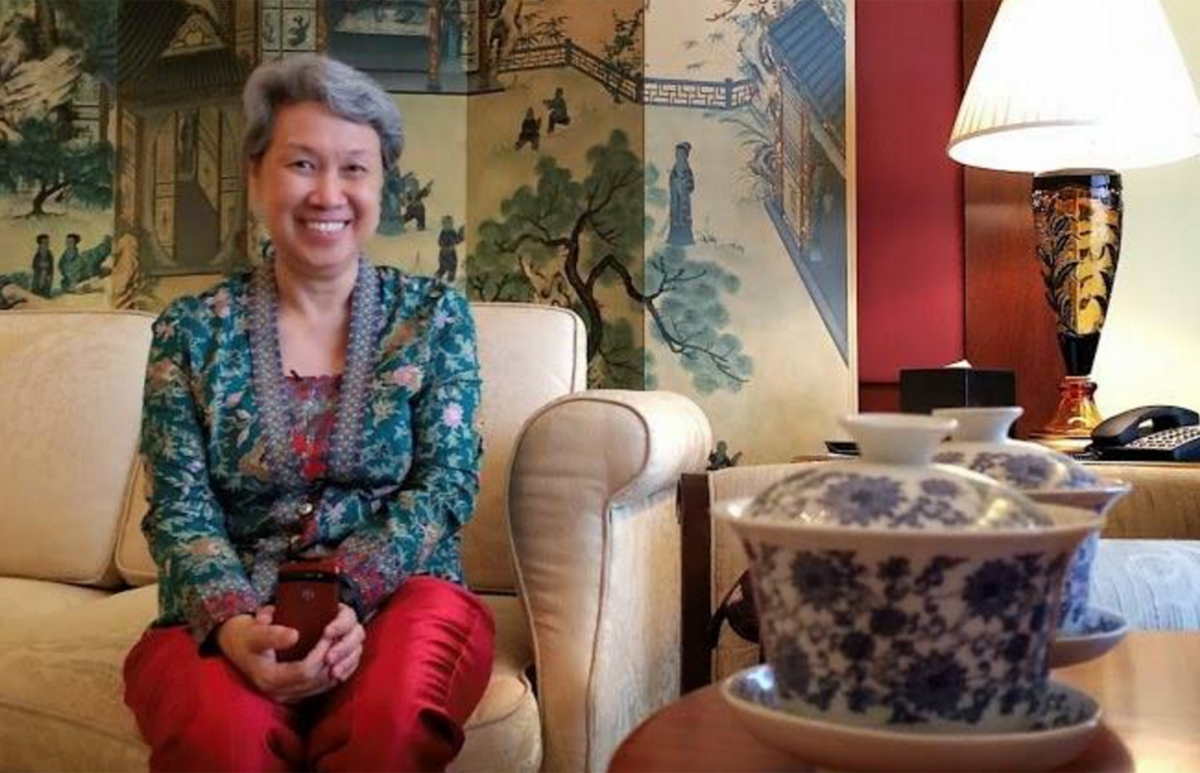It appears Ho Ching has weighed in on the Singlish debate.
In a Facebook post on June 2, 2016, she posted a view that supports the petition that has been going around since late May to remove the term "Chinese helicopter" from the Oxford English Dictionary.
This was after the derogatory term was one of the 19 Singlish terms added into its lexicon recently.
If you can't read her post, this is what it said:
On Chinese helicopters in the Oxford English Dictionary:
I was so surprised to read that the OED had just included the term "Chinese helicopter" as part of their new Singlish entries.
I had only heard this being used in my late teens in the early 1970s, listening in on the chatter of NS boys from English stream schools explaining this term they had learnt during their BMT about their NS mates from Chinese stream schools.
They had also told stories about being scolded by their sergeants for being "blur like sotong" too, not to mention the expectations and disciplines of "stand by bed".
However, with a bilingual education system since, we no longer have separate English and Chinese stream schools for decades.
Most if not all of the younger generation of Singaporeans would not have heard of "Chinese helicopters", while “blur sotongs” remain alive and current in their vocabulary (even though we now know better that sotongs are actually quite smart and not at all blur).
Mr Adam Reutens-Tan also described it as a "rediscovery" of the term, when he wrote to the Straits Times forum on this topic recently.
Unlike blur sotongs, the Chinese helicopter has obviously fallen into disuse for decades.
Hence my surprise to see this term resurface in the OED of all places.
Given its lack of currency in the Singlish lexicon today, I would support the petition to remove this term from the OED entry.
"Chinese helicopter" is a term that appears to have been derived from a mispronunciation of "Chinese-educated".
Its use was one accompanied by derision and turned into a label that equated Chinese-educated Singaporeans with inferior quality and low status in society on the basis of one's less fluent command of English.
The term was used in the 1970s and 1980s.
This current revival of the Singlish debate reached its peak where the kerfuffle culminated with the press secretary to Prime Minister Lee Hsien Loong writing a rebuttal to the New York Times (NYT) defending the Singapore government’s stance of making Singaporeans learn and use Standard English.
This response came after a widely-read opinion piece on Singlish by local poet and literary critic Gwee Li Sui appeared in the international version of NYT, seemingly poked fun at the government’s clampdown and subsequent embrace of the creole language for practical means.
Related articles:
Singlish just happens to be a living language that is more alive than standard English
American website makes Singlish sound like cheemanology
Oxford English Dictionary legitimises 19 Singlish terms by adding them to its lexicon
PM Lee’s press secretary rebuts S’porean literary critic’s New York Times article on Singlish
Top photo via
If you like what you read, follow us on Facebook and Twitter to get the latest updates.
If you like what you read, follow us on Facebook, Instagram, Twitter and Telegram to get the latest updates.
